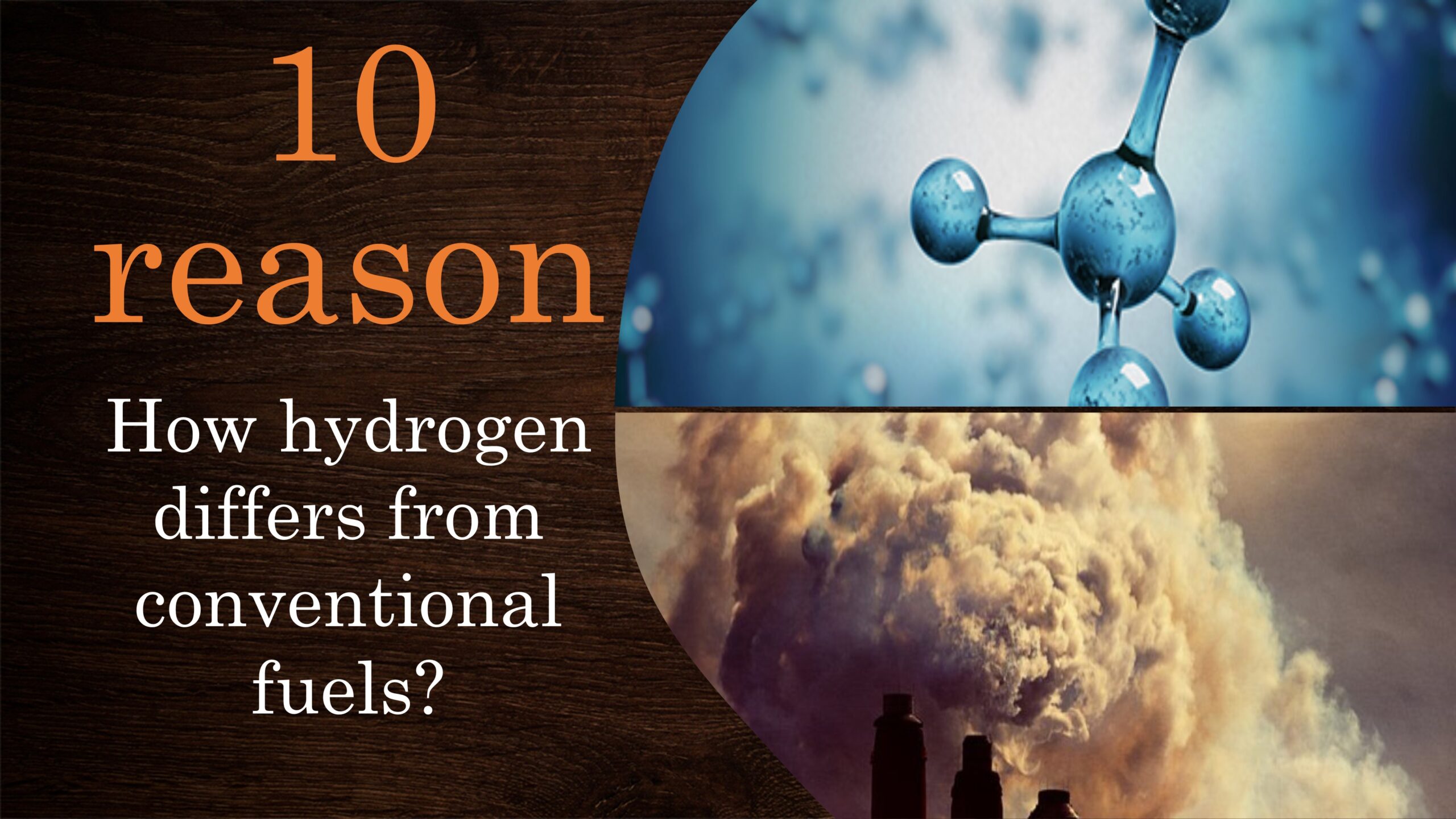Discussion on how hydrogen differs from conventional fuels will make sure the fruitful utilization of hydrogen as a fuel. Hydrogen is the most abundant element in the universe. It’s a colorless, odorless, and tasteless gas that is the simplest element to form. Hydrogen is also found in many compounds such as water, acids, and ammonia. There are so many differences between hydrogen and conventional fuels. Read this article to know about ten important reasons why and how hydrogen differs from conventional fuels.
Table of Contents
What is hydrogen?
Hydrogen gas is a colorless, odorless, tasteless, and highly flammable gas. It is produced naturally by certain bacteria and fungi and is also created synthetically. Hydrogen gas is used in many industrial processes, including oil refining, steel production, and fertilizer manufacturing. It is also used in some types of fuel cells. Hydrogen gas is extremely useful in the medical field, where it is used to treat cancer patients undergoing radiation therapy. In addition, hydrogen gas is used in rocket propulsion systems and in welding. You may read more about hydrogen (click here)
What are conventional fuels?
Any fossil fuel, including coal, gasoline, lignite, and others, is considered a conventional fuel. Conventional fuel can be burned to produce electricity or heat that can be used to run engines directly. As we know the simplest thing about hydrogen and conventional fuel, now we can get how hydrogen differs from conventional fuels.
How hydrogen differs from conventional fuels
Let’s discuss how hydrogen differs from conventional fuels. Read below about ten important reasons how and why hydrogen differs from conventional fuels.
Toxicity
Hydrogen is non-toxic and also non-poisonous. Inhaling hydrogen with outside air won’t have any negative effects.
Color and smell
Hydrogen gas is colorless, odorless, and tasteless. Thus, hydrogen is undetectable by the human senses.
Combustion
As we know that the lowest temperature at which a substance may spontaneously ignite without the aid of a flame or spark is known as the auto-ignition temperature. The temperatures at which hydrogen and natural gas automatically ignite are extremely close. Auto-ignition temperature of hydrogen and natural gas is 1085 0F and 1003 0F, respectively while the auto-ignition temperature of gasoline is about 450 0F
Environment
Unlike other renewable energy sources like wind power, hydrogen fuel cells do not pollute the environment through noise. Subsequently, much like electric automobiles, hydrogen-fueled vehicles are substantially quieter than other vehicle engines.
Pollution
Under normal atmospheric conditions, hydrogen has very less solubility than water which leads to low contamination of water. Hydrogen is not a pollutant because no evidence is found to contribute pollute the surrounding.
Light in nature
Hydrogen weighs approximately 57 times less than gasoline vapor and 14 times less than air. This means that if it is released in the open, it will usually rise and disperse quickly. This is a safety advantage in an outside environment.
Energy content
Hydrogen-assisted fuel cell technology provides a high-density, energy-efficient source of energy. By weight, hydrogen has the highest energy content of any common fuel.
Renewable
The most plentiful element in the universe, hydrogen, is a renewable energy source despite the associated tricky challenges. It is an incredibly abundant and renewable source of energy, ideal for our combined heat and power supply needs in the future which is zero-carbon.
Efficiency
In the case of efficiency, knowing hydrogen differs from conventional fuels is quite difficult, because the complete implementation of hydrogen energy is still in the way of research. Researchers found that many other energy sources are inefficient in comparison to hydrogen gas-assisted hydrogen fuel cells.
Flammability
Compared to other fuels, hydrogen has a relatively wide spectrum of flammability between 4% and 75% in the air. Compared to other popular fuels, hydrogen combustion requires far less energy to start but it can differ if hydrogen is in less concentration.
Must read
You may read a few important articles on hydrogen below:

